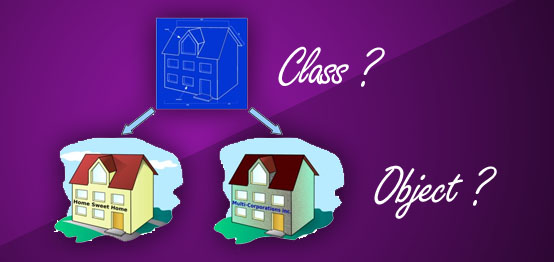Base 64 Encoder Dengan Java
Base64 Encoding adalah bentuk representasi data binary menjadi bentuk teks. Seperti kita tahu komputer hanya mengenal data binary, nah data inilah yang kita encode menjadi teks agar mudah dibaca oleh manusia. Pengertian menurut wikipedia adalah sebagai berikut:
[box type=”info” align=”aligncenter” ]Base64 is a group of similar binary-to-text encoding schemes that represent binary data in an ASCII string format by translating it into a radix-64 representation. The term base64 originates from a specific MIME content transfer encoding.
Base64 encoding schemes are commonly used when there is a need to encode binary data that needs to be stored and transferred over media that is designed to deal with textual data. This is to ensure that the data remains intact without modification during transport. Base64 is commonly used in a number of applications including email via MIME, and storing complex data in XML.[/box]
Untuk mempelajari konsep Base64 ini, silahkan pelajari sendiri dari wikipedia maupun sumber-sumber lain di internet. Untuk saat ini, bagaimana kalau kita ingin membuat method encoder ini di pemrograman Java ? Berikut ini adalah code Base64 yang ditulis oleh Christian d’Heureuse dari Inventec Informatik AG, Switzerland pada tahun 2003. Karena bersifat opensource, silahkan digunakan dan bebas untuk dimodifikasi selama mencantumkan pembuatnya.
/**
* A Base64 Encoder/Decoder.
*
* <p>
* This class is used to encode and decode data in Base64 format as described in RFC 1521.
*
* <p>
* This is "Open Source" software and released under the <a href="http://www.gnu.org/licenses/lgpl.html">GNU/LGPL</a> license.<br>
* It is provided "as is" without warranty of any kind.<br>
* Copyright 2003: Christian d'Heureuse, Inventec Informatik AG, Switzerland.<br>
* Home page: <a href="http://www.source-code.biz">www.source-code.biz</a><br>
*
* <p>
* Version history:<br>
* 2003-07-22 Christian d'Heureuse (chdh): Module created.<br>
* 2005-08-11 chdh: Lincense changed from GPL to LGPL.<br>
* 2006-11-21 chdh:<br>
* Method encode(String) renamed to encodeString(String).<br>
* Method decode(String) renamed to decodeString(String).<br>
* New method encode(byte[],int) added.<br>
* New method decode(String) added.<br>
*
*/
public class Base64Coder {
// Mapping table from 6-bit nibbles to Base64 characters.
private static char[] Map1 = new char[64];
static {
int i = 0;
for (char c = 'A'; c <= 'Z'; c++) {
Map1[i++] = c;
}
for (char c = 'a'; c <= 'z'; c++) {
Map1[i++] = c;
}
for (char c = '0'; c <= '9'; c++) {
Map1[i++] = c;
}
Map1[i++] = '+';
Map1[i++] = '/';
}
// Mapping table from Base64 characters to 6-bit nibbles.
private static byte[] Map2 = new byte[128];
static {
for (int i = 0; i < Map2.length; i++) {
Map2[i] = -1;
}
for (int i = 0; i < 64; i++) {
Map2[Map1[i]] = (byte) i;
}
}
/**
* Encodes a string into Base64 format.
* No blanks or line breaks are inserted.
* @param s a String to be encoded.
* @return A String with the Base64 encoded data.
*/
public static String EncodeString(String s) {
return new String(Encode(s.getBytes()));
}
/**
* Encodes a byte array into Base64 format.
* No blanks or line breaks are inserted.
* @param in an array containing the data bytes to be encoded.
* @return A character array with the Base64 encoded data.
*/
public static char[] Encode(byte[] in) {
return Encode(in, in.length);
}
/**
* Encodes a byte array into Base64 format.
* No blanks or line breaks are inserted.
* @param in an array containing the data bytes to be encoded.
* @param iLen number of bytes to process in <code>in</code>.
* @return A character array with the Base64 encoded data.
*/
public static char[] Encode(byte[] in, int iLen) {
int oDataLen = (iLen * 4 + 2) / 3; // output length without padding
int oLen = ((iLen + 2) / 3) * 4; // output length including padding
char[] out = new char[oLen];
int ip = 0;
int op = 0;
while (ip < iLen) {
int i0 = in[ip++] & 0xff;
int i1 = ip < iLen ? in[ip++] & 0xff : 0;
int i2 = ip < iLen ? in[ip++] & 0xff : 0;
int o0 = i0 >>> 2;
int o1 = ((i0 & 3) << 4) | (i1 >>> 4);
int o2 = ((i1 & 0xf) << 2) | (i2 >>> 6);
int o3 = i2 & 0x3F;
out[op++] = Map1[o0];
out[op++] = Map1[o1];
out[op] = op < oDataLen ? Map1[o2] : '=';
op++;
out[op] = op < oDataLen ? Map1[o3] : '=';
op++;
}
return out;
}
/**
* Decodes a string from Base64 format.
* @param s a Base64 String to be decoded.
* @return A String containing the decoded data.
* @throws IllegalArgumentException if the input is not valid Base64 encoded data.
*/
public static String DecodeString(String s) {
return new String(Decode(s));
}
/**
* Decodes a byte array from Base64 format.
* @param s a Base64 String to be decoded.
* @return An array containing the decoded data bytes.
* @throws IllegalArgumentException if the input is not valid Base64 encoded data.
*/
public static byte[] Decode(String s) {
return Decode(s.toCharArray());
}
/**
* Decodes a byte array from Base64 format.
* No blanks or line breaks are allowed within the Base64 encoded data.
* @param in a character array containing the Base64 encoded data.
* @return An array containing the decoded data bytes.
* @throws IllegalArgumentException if the input is not valid Base64 encoded data.
*/
public static byte[] Decode(char[] in) {
int iLen = in.length;
if (iLen % 4 != 0) {
throw new IllegalArgumentException("Length of Base64 encoded input string is not a multiple of 4.");
}
while (iLen > 0 && in[iLen - 1] == '=') {
iLen--;
}
int oLen = (iLen * 3) / 4;
byte[] out = new byte[oLen];
int ip = 0;
int op = 0;
while (ip < iLen) {
int i0 = in[ip++];
int i1 = in[ip++];
int i2 = ip < iLen ? in[ip++] : 'A';
int i3 = ip < iLen ? in[ip++] : 'A';
if (i0 > 127 || i1 > 127 || i2 > 127 || i3 > 127) {
throw new IllegalArgumentException("Illegal character in Base64 encoded data.");
}
int b0 = Map2[i0];
int b1 = Map2[i1];
int b2 = Map2[i2];
int b3 = Map2[i3];
if (b0 < 0 || b1 < 0 || b2 < 0 || b3 < 0) {
throw new IllegalArgumentException("Illegal character in Base64 encoded data.");
}
int o0 = (b0 << 2) | (b1 >>> 4);
int o1 = ((b1 & 0xf) << 4) | (b2 >>> 2);
int o2 = ((b2 & 3) << 6) | b3;
out[op++] = (byte) o0;
if (op < oLen) {
out[op++] = (byte) o1;
}
if (op < oLen) {
out[op++] = (byte) o2;
}
}
return out;
}
}
Untuk berikutnya, akan kita coba menconvert code di atas ke bahasa lain semisal C#, VB, PHP maupun bahasa pemrograman yang lain.
Selamat belajar 😀






Leave a Reply
Want to join the discussion?Feel free to contribute!